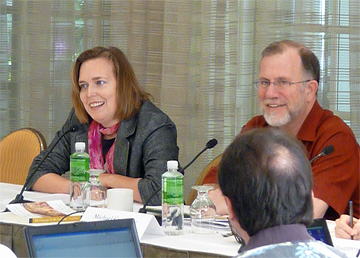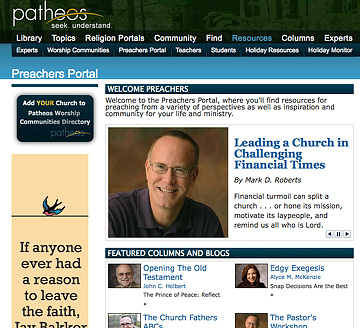Yes, there is a connection between these three topics. The connection is friendship. Please allow me to explain.
The Social Network, which recently won the Golden Globe award for the Best Motion Picture (Drama), tells the story of the founding of Facebook, the social networking website that now has 500 million uses. Or, one might say, the movie focuses on the legal battles surrounding the founding of Facebook. Or, more significantly, the film tells the ironic story of friendship. Why ironic? Because, on one level, The Social Network is all about Facebook, which is all about friends: having them (lots of them), connecting with them, etc. Yet, on another level, The Social Network paints a dreary picture of failed friendship. Former friends now interact only across the table in legal depositions as they sue and countersue. Genuine friendship has been replaced by drunken and drug-induced ecstasies and sexual intimacy without emotional intimacy or mutual commitment. To the extent that The Social Network truthfully depicts the values of today’s culture, it sounds the death knell for real friendship.
Conversely, The King’s Speech artfully captures an extraordinary friendship between a king and a commoner. This movie, which won the 2010 Toronto International Film Festival People’s Choice award, tells the story of the relationship between Britain’s King George VI (who is also Prince Albert, Duke of York) and Lionel Logue, an uncredentialed speech therapist who tries to help the prince/king overcome his stammering. In the context of this most unlikely relationship, the two men develop a deep, lasting friendship, in spite of the cultural forces that would disallow such mutual affection and commitment.
What does this have to do with the homosexuality of King David? A few days ago, on January 9, 2011, BBC radio in England featured a program that was supposed to celebrate the 400th anniversary of the King James Version of the Bible. In the context of this program, the playwright, Howard Brenton, who said this about King David: “David is in love with Saul’s son Jonathan. To the secular reader, the story of David’s and Jonathan’s love is obviously homosexual, the only gay relationship in the Bible.” As you might expect this comment lit a firestorm of controversy.
It is true that the Bible speaks of a powerful love between David and Jonathan, the prince of Israel. (Note the unexpected prince/commoner friendship, not unlike The King’s Speech. When he knew Jonathan, David was not the king or from a royal family.) Jonathan “loved [David] more than his own soul” (1 Sam 18:1) and “took great delight in David” (1 Sam 19:1). As they realized that their friendship was coming to an end, David bowed before Jonathan and “they kissed each other, and wept with each other” (1 Sam 20:41). After Jonathan died, David said, “My brother Jonathan; greatly beloved were you to me; your love to me was wonderful, passing the love of women” (2 Sam 1:25).
You can see why Howard Brenton would say, “To the secular reader, the story of David’s and Jonathan’s love is obviously homosexual.” In a sense I would agree with him, though the biblical evidence for their homosexuality is sorely lacking. The Hebrew word for the “love” between David and Jonathan, for example, is the same word that describes love within a family or the love of God. It was not uncommon in the culture of the Old Testament for men to kiss each other in obviously non-sexual contexts (such as Joseph’s reunion with his brothers; Gen 45:15). Meanwhile, the language for sexual intimacy, the language of knowing, does not get used for David and Jonathan. You only find that kind of thing if you project it into the text. Yet, if one does not pay attention to the cultural context of the biblical story, if one projects our cultural experience into the story, then one might very well see homosexuality in the relationship between David and Jonathan, such as Brenton does.
What this points out, I believe, is not only that people tend to force their own values and wishes into their reading of Scripture. It also testifies to our impoverished understanding and experience of friendship, especially male friendship. In my radio interview on this subject with Hugh Hewitt, he rightly pointed out that men on the battlefield can develop deep, loving friendships. That surely helps to make sense of the relationship between David and Jonathan.
But there is also the sad fact that, in our culture, if someone says a man loves a man, we assume this is a sexual relationship because we have so little experience of non-sexual loving friendship between men. Our secular culture just cannot conceive of deep love between men that isn’t homosexual. In fact, if The Social Network shows us something about the culture in which we live, and I believe it does in a striking way, then we are drowning in friendlessness even as we are adding hundreds of friends on Facebook.
P.S. If you like this blog post, please click the “Like” button at the top of this column so you can tell your friends on Facebook. LOL 🙂
P.P.S. Thanks to Hugh Hewitt for interviewing me and giving me the opportunity to make the connection between The Social Network, The King’s Speech, and David’s “homosexuality.”

